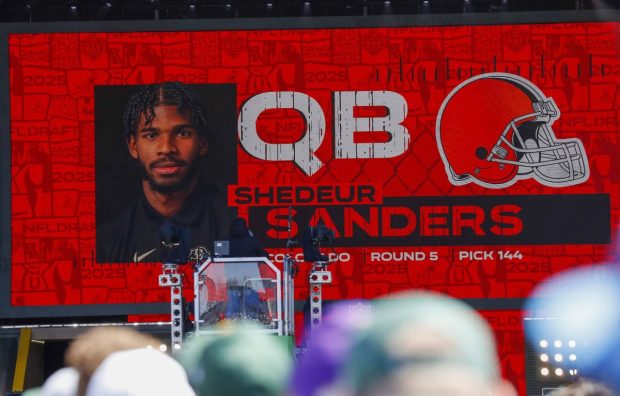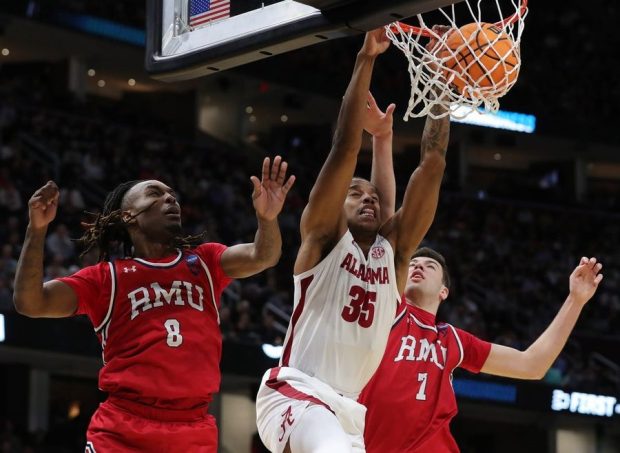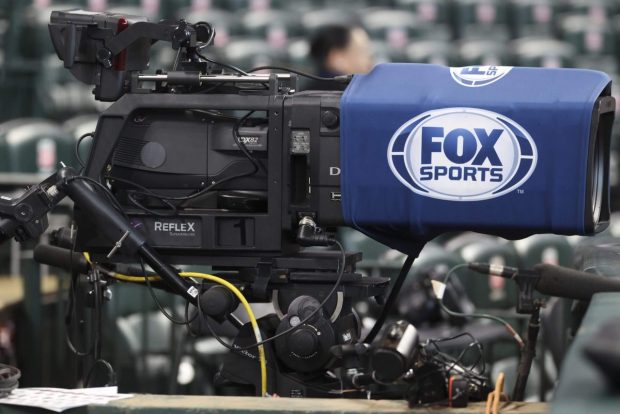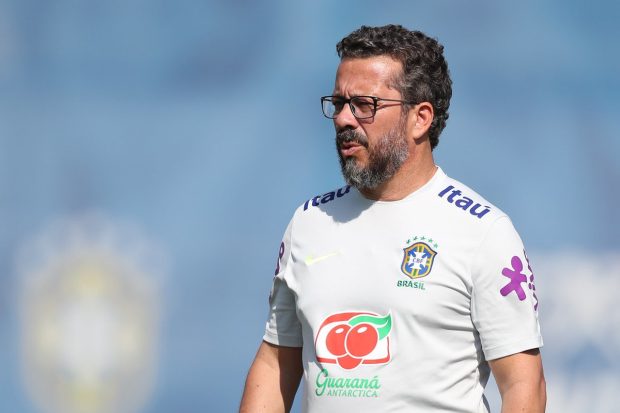With the Memphis Grizzlies’ season ending on a sour note in the first round against the top-seeded Oklahoma City Thunder, there are major questions as they head into the summer.
The current iteration of the team’s core, featuring Ja Morant and Jaren Jackson Jr., should very much be under scrutiny, even if the team itself might prefer to give it another go.
Advertisement
Let’s start with Morant, as he presents the most difficult piece but not for the reasons you may necessarily think.
Off-court issues aside (but certainly not forgotten), Morant is not easy to build around, strictly from a basketball perspective.
The 6-foot-2 guard is hyper-explosive, to the point where you can make a solid argument he’s the most athletic player in the NBA. That’s obviously an asset, but the advantages of such athleticism are often negated because of his constant injuries and his struggles as a shooter, as he fails to bend defenses when off the ball.
Now, Morant isn’t a total non-shooter. But his 30.5% shooting from behind the arc over the past three seasons is a problem, as teams play him far more for the drive than they do his jumper, suggesting not only that Morant plays a predictable brand of basketball, but that there are valid counters to slow him down.
Advertisement
Then there are the availability issues.
Has the Jaren Jackson Jr.-Ja Morant partnership run its course? (Photo by Justin Ford/Getty Images)
(Justin Ford via Getty Images)
Suspensions and injuries are part of NBA life, but Morant has played an average of 40 games the past three seasons.
As he’s about to turn 26, it’s getting to be that time when you have to ask if it’s worth committing to him further, or if his presence will land you in perpetual mediocrity.
Furthermore, as an organization, you also have to wonder about continually betting on his athleticism.
Given how much he relies on his athletic ability, what happens if he has a major leg injury and loses some spring in his step? Can he alter his game and run a tighter ship as a genuine floor leader, or will you have a player who has just lost a major portion of his game?
Advertisement
Even without a major injury — which obviously no one is rooting for — his athleticism will eventually begin to decline, and there’s always the risk that it diminishes so aggressively his value plummets.
Morant has just completed his sixth season, and it isn’t great that his best season was three years ago with little improvement to his overall game.
It would be a different matter if Morant were an elite playmaker or devastatingly effective defender, but neither is the case. His greatest skill — scoring — is executed through pedestrian efficiency with a turnover rate that jumped more than 3 percentage points this year.
Advertisement
Contractually, Memphis has Morant under control for another three seasons, but now might be a good time to test his market. There should be several teams interested in an in-his-prime point guard who can sleepwalk to 20 points per game and capture the imagination of the fan base.
If Memphis is offered a haul, it’d be hard to justify not accepting it.
As for Jackson, let’s start with the contractual complications.
When the Grizzlies signed him to an extension in 2021, they front-loaded the deal, meaning his salary decreases every year.
This has become a problem, as the 140% veteran extension limit now takes over. Jackson has one year left on his deal at $23.4 million, and extending his contract off that number with a limited raise of 140% isn’t likely to be a number he’ll accept.
Advertisement
However … are we that far off?
Basing a new deal off 140% of his $23.4 million salary means an extension starts at $32.7 million.
That might be a number Jackson and his team considers too low, but given where he’s at as a basketball player, it might prove to be an offer Memphis can at least justify making.
Much like Morant, Jackson is a high-volume scorer. He averaged 22.2 points this season in just 29.8 minutes. He’s also a former Defensive Player of the Year, so unlike Morant, there’s another major component present.
Obviously, that’s max-level stuff, right?
Well, perhaps not.
Jackson has historically been — and remains — a terrible rebounder.
Advertisement
Over the past two seasons, Jackson — with his 6-11 frame, major athletic ability and 7-5 wingspan — has grabbed 5.6 rebounds in 30.9 minutes per game.
Jackson also Is extremely foul-prone. It’s a problem most bigs go through, so it’s difficult to harp too much on it, but considering it can limit his availability, that should factor into contract negotiations.
Finally, and probably most concerning, is his play in the postseason, when his scoring efficiency and overall production plummets.
While Jackson is a tremendous regular-season player, his playoff performance over four seasons and 27 games has been a problem. He connected on just 39.6% of his shots, averaged 15.7 points and committed 4.1 fouls in just over 30 minutes per game. He’s yet to adjust to teams game-planning against him.
Advertisement
The word exposed is used far too often in NBA context and unfortunately used to minimize the play of quality players in an attempt to belittle their worth. It’d be unfair to use that description for Jackson, given how the word’s meaning has changed in recent years.
In the traditional sense, being exposed in NBA terms meant a player became unreliable, and opponents didn’t have to worry about him to a great extent in a particular series, in large part due to matchups.
That’s been the case for Jackson. In every single series he’s played, he’s struggled in some capacity.
Jackson has hit just 43.7% of his 2s in his playoff career, in large part because he doesn’t have a half-court counter when the 3-pointer is taken away.
Advertisement
He’s not a traditional post-up player, nor does he have Chris Bosh-esque shot-making ability in the midrange. He’s a rim-runner who can take an enormous amount of 3s, and that’s basically his offense summed up.
Perhaps a new deal starting at $32.7 million is fine. You’ll be paying him primarily to get you to the playoffs — which he does very well — and for excellent two-way production during the regular season. That’s not a bad way to spend.
But as has become evident, Morant and Jackson have some meshing issues.
The overarching problem, however, is how their strengths and weaknesses only complement each other in some areas.
Advertisement
Let’s start with the good.
Jackson’s floor-spacing is crucial to Morant’s preferred slashing style. It opens up the floor for the point guard to take advantage of driving lanes, and the pick-and-pop optionality is indeed a genuine weapon to base a fair chunk of the offense.
Both players are athletic and can run the floor, and having a big man who can trail the play, dunk in transition or pull from range allows Memphis to install multiple fast-break options.
Where they run into issues is when the game slows down, and they’re faced with opponents who play disciplined defense.
It’s becoming fairly well-known that backing off Morant is a viable defensive plan, which means the defense packs it in and takes away easy 2s and lob options for Jackson.
Advertisement
If Jackson were to play with several players on the court who could consistently bend defenses from outside the 3-point line, he’d have a much easier time roaming free on the inside and getting to spots where he can be more efficient.
And if Morant were subsequently paired with a big man who had a more stable interior game, he would be able to run far more pick-and-roll action with the big is going to the rim instead of away from it.
Defensively, Morant can shadow the ball quite well, but he will get beat off backdoor cuts and generally be caught watching. That doesn’t help Jackson’s foul issues because he has to rotate over and cover for his point guard.
All that being said, it’s not as if Morant and Jackson make up the worst duo in the league. As a duo, they’re … fine.
Advertisement
But is fine enough for Memphis, which appears to have championship goals?
At the very least, if the interplay between your two best players is just adequate, you’re facing long odds at making a competitive run.
And that’s the issue Memphis is facing. It is at a crossroad, and now is the time to make a call.
The Grizzlies should be commended for giving this iteration of the roster a real shot. Instead of rolling over in desperation after the first few years, the organization decided to stick with it, banking on internal improvements and attempting to pursue stability.
That was the right call, and none of the above should be seen as Memphis failing in its approach. The Grizzlies played this as they should have and with a great deal of patience.
Advertisement
But what will be a failure is sticking way too long with a core that doesn’t work, torpedoing their players’ trade value and starting over too late in the process.
Whether they internally have reached a point where they’re willing to consider change remains to be seen. This summer will likely tell us a lot.
This news was originally published on this post .











Be the first to leave a comment